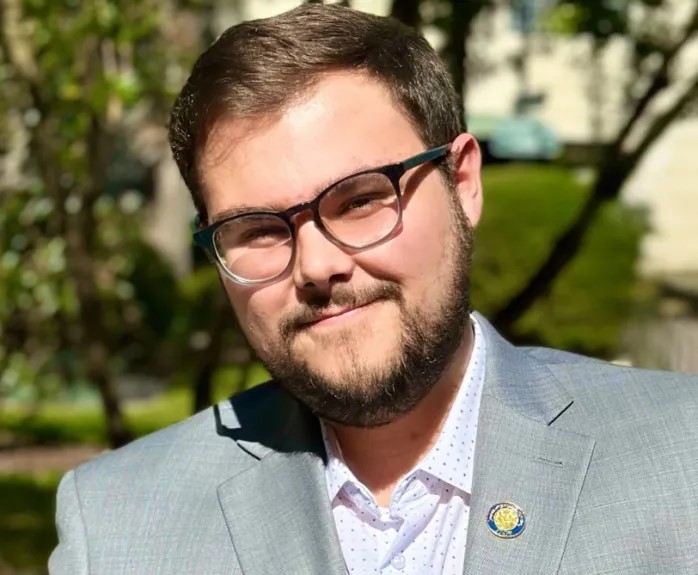By Alejandro Florez, Poder Latinx
With the unprecedented rise in insurance and rental prices, Floridians are now suffering from a new surge in expenses that is hardly discussed — an increase in transportation costs.
Tampa and Miami have already risen among the top five cities with the highest transportation costs. Since Florida is car-centric, we’re seeing higher portions of household income spent on auto necessities. Electric vehicles could be a viable solution to combat this. However, there needs to be more institutional backing to make them more accessible.
I arrived in the United States in 2016 with only two bags and a yearning for new opportunities in the world’s most economically and environmentally advanced country, hoping to put my passion for sustainability to work. Coming from Venezuela, I was eager to learn about the advances in electric transportation, as I was sure the Sunshine State would be the first to embrace this revolutionary new technology. I was wrong.

As the program coordinator for Poder Latinx in Florida, I’ve been working on the impact of sustainability on the Latino community in our state and have seen how federal environmental policies have a significant economic impact on minority communities, particularly Latinos.
For example, the federal government has emphasized a more sustainable future through the Bipartisan Infrastructure Law with the Inflation Reduction Act as a mechanism to implement it. These acts create new investment opportunities in all aspects of the state’s transportation systems and allow families to have more access to advanced technology in electric transportation while protecting families’ finances nationwide.
However, as more states began rolling out plans and incentives for their residents to acquire electric vehicles and become energy-independent with their own solar panels, Florida’s leadership remained silent until now.
Our state could receive a portion of the Bipartisan Infrastructure Law that includes a $110 billion investment to repair our roads and bridges, modernizing our transportation system. Other portions of the Bipartisan Infrastructure Law that would benefit Floridians are the $89.99 billion funding intended for public transit and the $50 billion focused on combating extreme weather. These contributions would help replace deficient public transit vehicles, bring brand-new zero-emissions vehicles and make our infrastructure more resilient against extreme weather.
Instead of taking advantage of these benefits and bringing much-needed financial relief to all Floridians, the state’s leadership is pushing back on these environmental initiatives. They’re creating terms such as “Greenhouse Gaslighting” on their new “Roads are not for Politics” website to misguide Floridians and seemingly find an excuse not to take the much-needed funds to promote a different agenda that does not benefit Floridian families.
A major concern is that misinformation has begun to run rampant as a campaign against environmental policies. The newly rolled-out website launched by Gov. Ron DeSantis’ administration mentions that “the U.S. Department of Transportation (USDOT) seeks to force people out of their cars.” This is an unequivocally false statement since the department has frequently discussed incentivizing electric transportation by providing tax rebates and financial incentives.

With an election approaching, these are some of the issues we must consider when casting our ballots. We need leaders who prioritize the well-being of our families. No matter your political affiliation or background, we are all impacted by Florida’s economic direction. This is why it is so important to ask ourselves: Are my elected officials thinking of my family’s well-being or their own agenda?
As a passionate young advocate for the environment and other social justice issues that have a tremendous impact on our Latino communities, I urge everyone eligible to register to vote. By registering to vote in November, we can showcase our voting power and become decision-makers for our democracy. We have the power to put environmental issues on the table and provide much-needed support for families across Florida.
We cannot afford to ignore the voices of those most impacted by this crisis — the working parents, the single mothers and the marginalized communities struggling to make ends meet.
Our families deserve better, and it’s time for Florida to take charge of reimagining a transportation system that is accessible, affordable and equitable. Let’s make our voices heard and ensure Floridian families’ interests are represented.
Alejandro Florez of Orlando is the state program coordinator for Poder Latinx, working toward environmental justice. This opinion piece was originally published by the Orlando Sentinel, which is a media partner of The Invading Sea.
If you are interested in submitting an opinion piece to The Invading Sea, email Editor Nathan Crabbe at ncrabbe@fau.edu. Sign up for The Invading Sea newsletter by visiting here.



